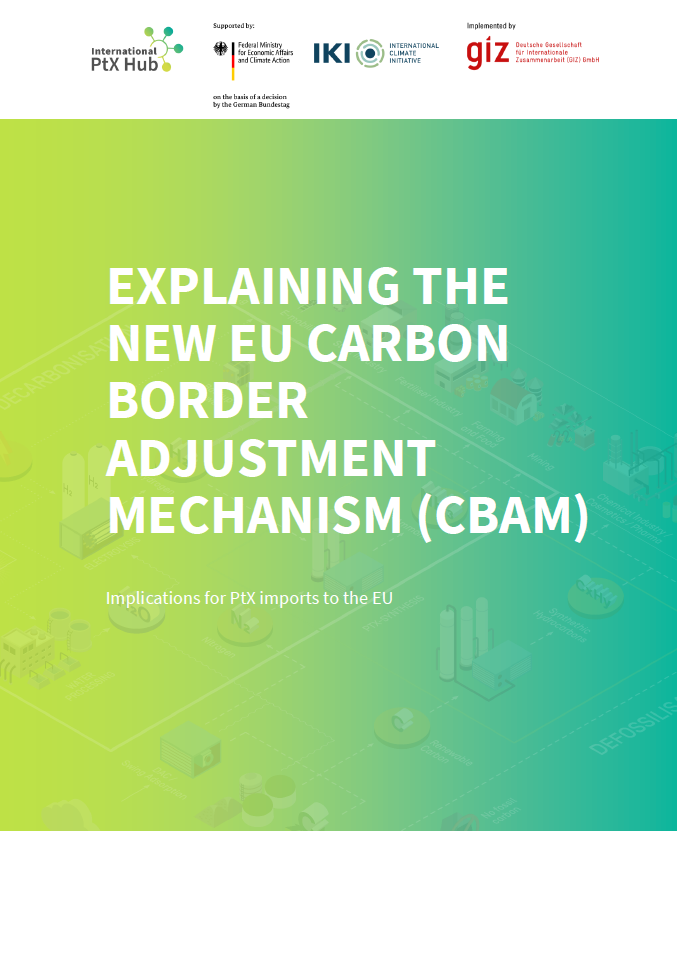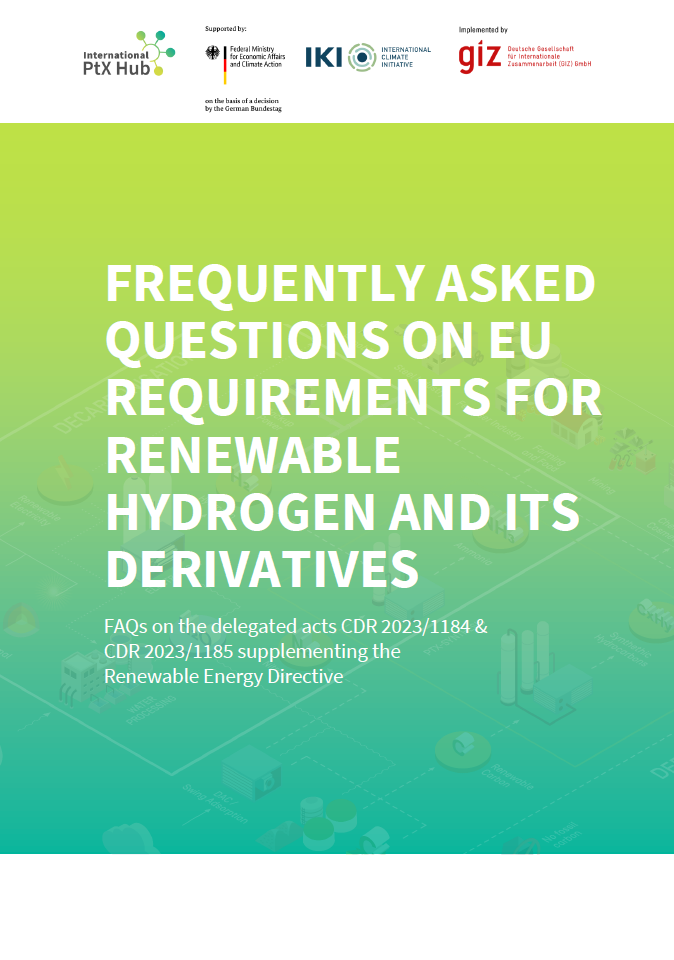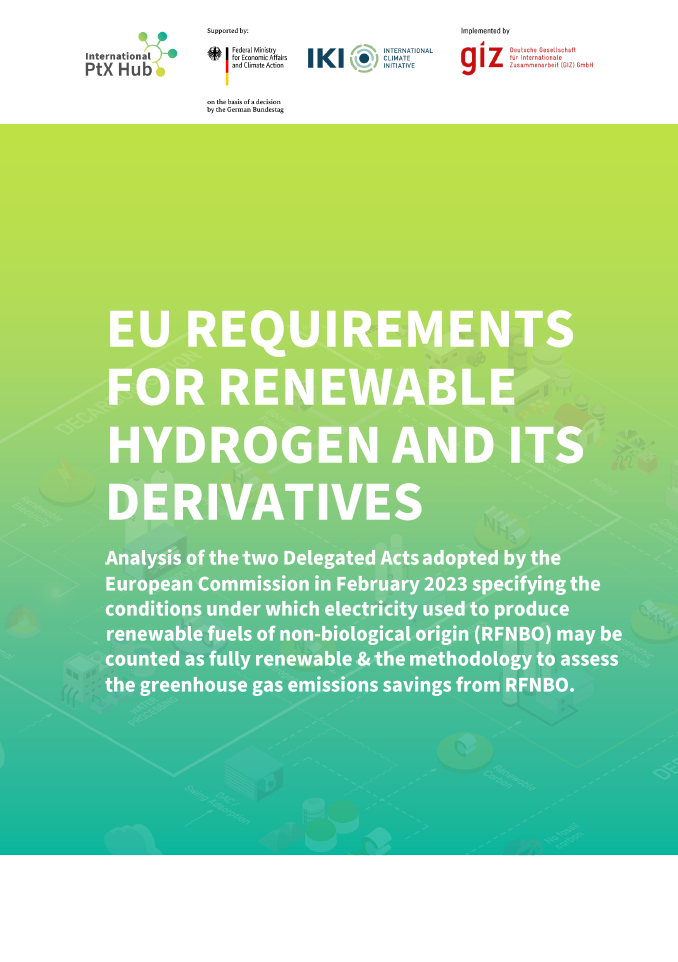Background and Context for the EU Hydrogen Certification Rules and Procedures
- Presentation
- Date
-
March to September 2023
- Location
- Colombia, Uruguay, Chile, Namibia, South Africa, Kenya, Algeria, India, Vietnam, Jordan
- Speech
-
Dominik Seebach (Oeko-Institut)Christoph Heinemann (Oeko-Institut)Miha Jensterle (adelphi)
After years of intense debate, the EU requirements for renewable hydrogen and its derivates entered into force in June 2023. The Commission Delegated Regulation (CDR) 2023/1184 contains detailed rules on the conditions under which electricity used to produce hydrogen may be counted as fully renewable according to European Union (EU) law; CDR 2023/1185 specifies a methodology to assess the greenhouse gas (GHG) emissions savings from renewable fuels based on hydrogen (so-called renewable fuels of non-biological origin, RFNBOs) and for recycled carbon fuels (RCFs).
To discuss the implications of these regulations, the Internatonal PtX Hub organized a series of workshop series with public and private sector stakeholders from Algeria, Chile, India, Jordan, Kenya, Namibia, South Africa, Uruguay and Vietnam. The workshops provided detailed and up-to-date insights on the debate and emerging regulatory framework for the certification of the greenhouse gas emission (GHG) accounting and of the sustainability of hydrogen production and PtX products.
Raffaele Piria from Ecologic Institute was the project lead and content-wise coordinator of the workshops. He gave the first presentation on the climate and energy policy context for the EU's hydrogen strategies and policies. Project partners from Oeko-Institut and adelphi provided further presentations on






